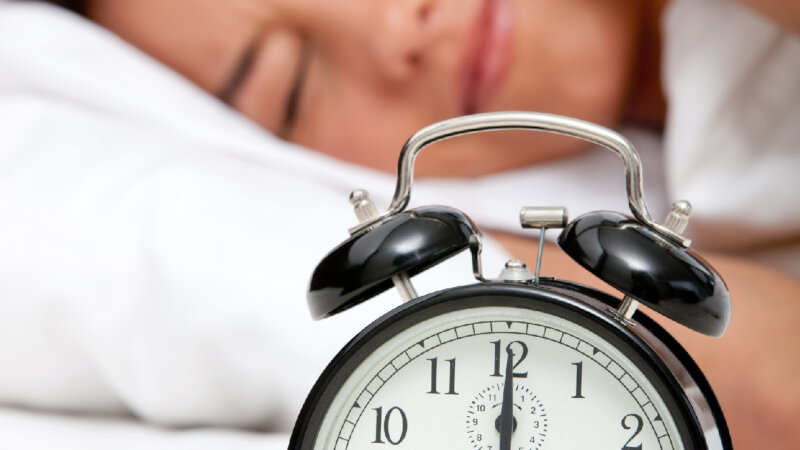Treating insomnia
- Most people will experience periods of sleep disturbance at some stage of their lives, and is common among veterans. Sleep disturbance will normally last for less than three weeks.
- Self-management strategies are the first-line intervention for insomnia, followed by Cognitive behavioural therapy for Insomnia (CBT-I).
- The CBT-i Coach app by the US VA includes a sleep diary that may assist clinicians with the assessment process for insomnia.
Key characteristics
Short-term sleep difficulties could be caused by:
- illness
- stress
- increased caffeine intake
- changes in diet
Some people will have more long-lasting difficulty in initiating or maintaining sleep. Chronic non-restorative sleep indicates they may have insomnia. People with insomnia may also show:
- a decline in:
- social activity
- occupational capacity
- attention or memory
- mood (feeling irritable)
- behavioural problems include hyperactivity or aggression. Hyperactivity may mean that clients do not appear tired, despite subjective reports of sleepiness
Prevalence
Scant evidence exists about the prevalence of insomnia. Australian studies have reported a prevalence of:
- 5-12% in the adult population (Knox, et al., 2008; Reynolds, et al., 2019).
Females are more likely to suffer from insomnia than males (Zhang & Wing, 2006). Given the increasing proportion of women in younger veteran cohorts, it is worth keeping this in mind.
Sleep problems are often related to other mental health conditions. Such as:
- depression
- anxiety or
- PTSD
- substance misuse
- general medical conditions (such as sleep apnoea or pain)
Therefore, it is important to screen for these disorders if chronic sleep problems are detected.
For veterans, sleep problems may also stem from military experiences. There may be a lingering impact of disturbed sleep routines resulting from:
- prolonged periods of sentry
- ‘picket’ duty shifts during the night
Veterans may have frequent nightmares related to military experiences. Hypervigilance may also have a negative impact on the sleep process.
Screening and assessment
Insomnia is both a common and complex condition. Medical treatment should be based on a thorough assessment that includes:
- detailed history
- physical examination
- medical investigations in some instances
The assessment should also clarify the consequences of insomnia for a veteran’s functioning and quality of life. Useful questions to ask the veteran include:
- Do you have any problems with your sleep?
- How many hours of sleep do you usually get at night?
Screening questions should include investigations of early, middle and late-onset insomnia. For early-onset insomnia:
- Do you have difficulty getting off to sleep at night?
- How long does it take to fall asleep?
For middle-onset insomnia:
- Do you wake in the middle of the night?
- How many times do you wake?
- How long does it take to fall back asleep?
For late-onset insomnia:
- Do you wake early in the morning and have trouble going back to sleep?
Asking the veteran to keep a sleep diary for about a week can assist with the assessment process. Useful things to include in the sleep diary include:
- time of retiring to bed
- time of waking-up
- time taken to fall asleep
- number of awakenings during the night
- total time spent awake in bed
- level of fatigue during the day
Further physical investigations of sleep problems such as suspected sleep apnoea can be conducted by sleep centres or clinics.
Psychoeducation and self-management strategies
Self-management strategies encouraged by a GP are the recommended first-line intervention for insomnia. However, if the insomnia persists after the veteran has implemented self-management strategies, it may be necessary to consider more formal interventions.
Practitioners can advise veterans on a number of sleep hygiene strategies. These may allow them to manage their sleep difficulties common to many disorders. Practitioners should:
- reassure the veteran that most people have difficulty sleeping at some time in their lives, and that for the majority it is only temporary
- assist the veteran to resolve, if possible, a specific problem that is contributing to the insomnia. Where necessary, refer for psychological treatment
- discourage the use of sleeping tablets if other methods have not yet been tried
- provide education about the principles of good sleep habits
These strategies are based on the premise that sleep problems can be developed and/or maintained by a series of problems or habits inherently disruptive to sleep. Sleep hygiene techniques seek to re-establish sleep promoting behaviours. Key features of sleep hygiene include:
- establishing an appropriate sleep environment — insulate the bedroom against outside noises and to block out light, and keep the room at an even temperature
- removing from the bedroom stimuli not associated with sleep
- reducing the time spent in bed worrying about sleep or other matters — keep a notebook next to the bed for jotting down any thoughts that come to mind for the next day, then let them go
- avoiding alcohol, caffeine and nicotine in the late afternoon and evening
- exercising regularly - late in the afternoon or early in the evening
An important component of sleep hygiene is stimulus control; encourage the veteran to:
- go to bed only when sleepy
- limit bedtime activities to sleep and sex
- wait for sleep for 15-20 minutes
- get up if they do not fall asleep
- go to another room
- stay up until they begin to feel sleepy
- only then go back to bed
- repeat this process as often as they need to fall asleep
- get up at the same time each morning, no matter how long they have slept
- do not have naps during the day
Psychological interventions
In the event self-management strategies are noneffective, more formal intervention is required. Cognitive behavioural therapy for insomnia (CBT-I) is the recommended approach (e.g., Ree et al., 2017)
Cognitive behavioural therapy for Insomnia (CBT-I)
CBT-I is designed to assist clients in developing healthy sleep habits through a range of behavioural interventions and in challenging the negative thoughts or cognitions that can play a role in maintaining and perpetuating sleep disturbance. CBT-I may include the following components:
- psychoeducation – to increase understanding about insomnia in order to address misconceptions about sleep that may be perpetuating sleep disturbances
- sleep hygiene and stimulus control strategies - these strategies include removing stimuli from the bedroom that is not related to sleep, avoiding caffeine, and ensuring that the bed is only associated with sleep.
- cognitive therapy – this is important as negative thoughts or cognitions can play a role in maintaining and perpetuating sleep disturbance. For example, the veteran may have worrying thoughts around the feared consequences about the loss of sleep and unrealistic expectations about how much sleep is actually required.
CBT-i Coach is an app for people who are engaged in Cognitive Behavioral Therapy for Insomnia with a health provider, or who have experienced symptoms of insomnia and would like to improve their sleep habits. The app will guide users through the process of learning about sleep, developing positive sleep routines, and improving their sleep environments. It provides a structured program that teaches strategies proven to improve sleep and help alleviate symptoms of insomnia.
Psychological treatment setting and duration
Insomnia can usually be treated in an outpatient setting. There is currently insufficient evidence to recommend an optimal duration of psychological treatment.
Pharmacological interventions
Pharmacotherapy for insomnia should be limited to the:
- lowest necessary dose
- shortest necessary duration.
Pharmacotherapy should not be used in isolation from CBT-I or other evidence-based psychological interventions. If medication is considered necessary, non-benzodiazepine hypnotic agents such as zolpidem (e.g. Stilnox) and zopiclone (e.g. Imovane) are the preferred first-line agents. These are preferred as they:
- have a cleaner profile of action
- do not have anxiolytic, muscle relaxant or anticonvulsant properties.
- are less likely to distort normal sleep architecture
- are less likely to cause rebound insomnia or withdrawal syndromes than benzodiazepines.
Benzodiazepine hypnotics are problematic because of the potential for:
- tolerance and dependency,
- residual daytime cognitive impairment,
- interference with motor function
- association with confusional states and falls in the elderly.
Longer-acting more potent agents such as nitrazepam (e.g. Alodorm) and flunitrazepam (e.g. Hypnodorm) should be avoided for these reasons.
When other agents such as antihistamines and sedating antidepressants are used for their hypnotic effects, the broader array of potential side effects must be considered and balanced against the desired benefits. As a general principle, short-term use (less than four weeks) is preferable when using hypnotic medication. This helps to prevent many potential complications.
Longer-term use of hypnotic medication may be required if:
- stopping the medication leads to greater impairment of the veteran’s quality of life,
- all other treatments for insomnia have proven unsuccessful.
In the longer-term situations, intermittent use is preferable to continuous use. Withdrawal from long-term use should always be tapered slowly.
See also
-

Sleep well
Almost everyone has trouble sleeping occasionally. Not getting enough sleep here or there is nothing to worry about. On the other hand, sleep problems that last for weeks or even months can really interfere with your life. If you’re worried about your sleep, we can help. -

Treatment programs and workshops
Open Arms range of group activities includes both face to face group treatment programs and online groups. -
Healthy sleeping tool
If you think your sleep could be better, you can use this healthy sleeping tool to review your sleep behaviours. It will offer you tailored advice and tips for improving your sleep.





